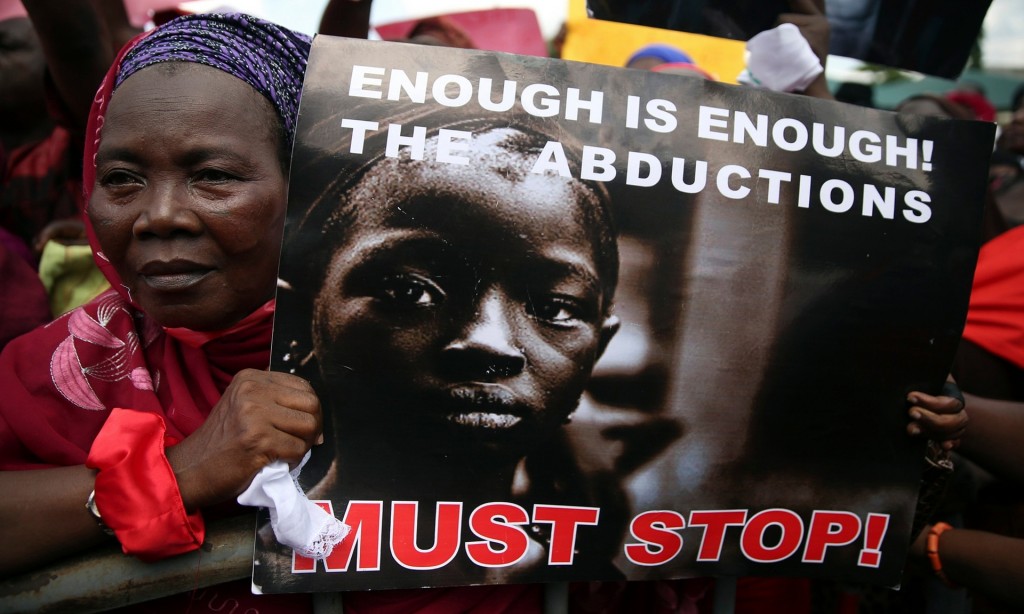Women and girls freed from Boko Haram face discrimination and rejection by their families and communities when they return home and need better support from the Nigerian government and NGOs, according to a new report.
As the military gain ground from the Islamic militant group, more women and girls, who have been subjected to sexual violence, are being released.
But when they get home, they are viewed with mistrust and suspicion, and do not receive adequate support to help them cope with the trauma of what they’ve experienced, according to the report, Bad blood: perceptions of children born of conflict-related sexual violence and women and girls associated with Boko Haram in north-east Nigeria, published on Tuesday by International Alert and the UN children’s fund, Unicef.
“These findings show a pressing need to do more to reintegrate those returning from captivity by Boko Haram. Many of these girls already face lasting trauma of sexual violence and being separated from their families, so we must ensure they get all the support they need when they finally return,” said Kimairis Toogood, peace building adviser for International Alert in Nigeria.
“If the needs of these survivors and returning populations are not met, these factors could add another dimension to an already complex conflict situation.”
Since 2012, more than 2,000 women and girls have been abducted by Boko Haram, including more than 200 taken from their secondary school in Chibok, in Borno state in 2014. The kidnappings spawned the #BringBackOurGirls campaign, which attracted global high-level attention from the likes of Michelle Obama.
People released from captivity said they endured physical and sexual violence, forced marriage to militants and forced labour. Some were trained to fight and become suicide bombers.
The report says some of the rejection returnees face stems from fear that they will try to radicalise others.
Children born as a result of rape are viewed with particular scorn because they are considered tainted by the “bad blood” transmitted from their militant biological fathers.
“The rejection and re-victimisation of women, girls and their children, as well as their yet unborn babies, needs to be understood in the context of the ongoing insurgency,” said the report.
“Many people view these women, girls and their children as a direct threat, fearing that they have been indoctrinated and radicalised by JAS [Jama’atul ahl al-sunnah li da’awati wal jihad, the name of the group commonly known as Boko Haram]. The recent increase in the use of female suicide bombers throughout Nigeria, including under 18-year-olds, has also reinforced the widely held belief among many that women and girls exposed to JAS (whether by force or voluntarily) are contributing to the overall insecurity in the region.”
Last week, a girl claiming she had been sent by Boko Haram refused to detonate her suicide vest in Dikwa refugee camp. Two others carried out their mission, killing at least 58 people.
The report added: “Some also believe that the children conceived as a result of sexual violence or sexual relations with JAS members will become the next generation of fighters, as they carry the violent characteristics of their biological fathers.”
The report calls on the government and NGOs to put in place protection and support services for those returning home, and to give better education to people living in the areas where they are returning on what the women and girls may have faced.
A report by Human Rights Watch in 2014 called for similar programmes to be established.
The latest research was conducted in Maiduguri, the state capital of Borno, which is currently home to about 95% of people internally displaced by the fighting.
More than 2.5 million people have been forced to flee their homes because of conflict in Nigeria’s north-east. Around 2.1 million are still living in the country: about 10% in camps, the rest in host communities.
Last week, UN human rights experts called on the government to ensure the areas recaptured from insurgents are truly safe for people to return home. They also called for IDP camps to be protected.

